Tag: Patrick Dunleavy

First-past-the-post – normal (disproportionate) service has resumed
In the 2017 election the UK’s ‘first-past-the-post’ electoral system operated quite proportionately, as the Conservatives and Labour level-pegged at high levels of support, and squeezed out support for other parties. In 2019, however, FPTP reverted most of the way back to its historic pattern, awarding a huge ‘leader’s bonus’ of seats to the Conservatives in England and to the SNP in Scotland. Patrick Dunleavy explores why the levels of disproportionality have bounced back towards historic levels.

After the prorogation coup, what’s left of the British constitution?
The contemptuous ease with which the Johnson-Cummings regime has attempted to cripple parliamentary consideration of alternatives to a no-deal Brexit by proroguing parliament raises serious issues about the remaining value of the UK’s ‘unfixed constitution’. This controversy comes after a prolonged period in which the executive under Theresa May used every micro-institutional weapon to blackmail MPs into accepting its deal. Patrick Dunleavy argues that the UK has slipped into having a failed constitution, where core democratic institutions are contaminated by rigged micro-institutions. The control of power has become dominated by a bunch of executive tricks, and an uncodified ‘constitution’ no longer provides any predictable or worthwhile constraints on government action. Yet it may be only a small step from creating a failed constitution to becoming some version of a failed state.

Losing the ‘Europeanisation’ meta-narrative for modernising British democracy
Contrary to claims of Britain’s enduring political and constitutional distinctiveness, in the period from 1997 to 2016 the UK in fact modernised its polity by following several strong ‘Europeanisation’ trends. British democracy came to increasingly resemble other European liberal democracies in some fundamental ways. Yet now this meta-narrative may be lost following Brexit. Patrick Dunleavy explores some implications of the UK’s possible lapse back into rudderless idiosyncrasy.
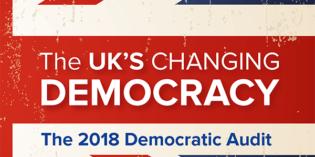
Micro-institutions in liberal democracies: what they are and why they matter
Liberal democracies combine core ‘macro-institutions’ (like free elections and control by legislatures) with swarms of supportive ‘micro-institutions’. By contrast, semi-democracies keep only the façade of macro-institutions, subverting a range of critical micro-institutions so as to make political competition and popular control a hollow sham. Drawing on a new book, Patrick Dunleavy explains why these developments mean that political science has to get a lot more granular and sophisticated, instead of focusing just on ‘toy models’.
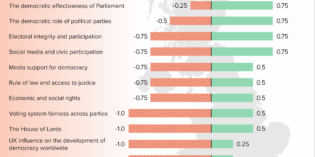
Auditing the UK’s democracy in 2018: Core UK governance institutions show sharply declining efficacy
Today we are publishing The UK’s Changing Democracy: The 2018 Democratic Audit, a systematic assessment of the country’s democratic institutions, large and small. Previous audits of the UK’s democracy, including the most recent in 2012, have generally found that, overall, the quality of our democratic institutions have improved over the past twenty years. However, Patrick Dunleavy and Alice Park find that this year’s Audit shows unprecedented declines in the core institutions of the UK’s democratic system, particularly at the centre.
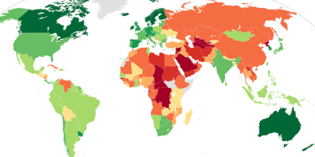
In comparative league tables of liberal democracies the UK’s democracy is judged to be First Division, but not Premier League
Ranking established liberal democracies against countries that are still developing a democratic polity risks awarding the long-lived countries ‘ceiling’ scores at the top of the table – feeding complacency amongst their elites and domestic publics that they can now rest easy on their laurels. However quantitative rankings typically do not treat the UK in this manner. Instead they assign it to a ‘good but not great’ category, well behind the states leading democratic good practice. For our new book, The UK’s Changing Democracy: The 2018 Democratic Audit, Patrick Dunleavy explores why.

How democratic and effective are the UK’s civil service and public services management systems?
Citizens and civil society have most contact with the administrative apparatus of the UK state, whose operations can powerfully condition life chances and experiences. In an article from our forthcoming book, The UK’s Changing Democracy: The 2018 Democratic Audit, Patrick Dunleavy considers the responsiveness of traditionally dominant civil service headquartered in Whitehall, and the wider administration of key public services, notably the NHS, policing and other administrations in England. Are public managers at all levels of the UK and England accountable enough to citizens, public opinion and elected representatives and legislatures? And how representative of, and in touch with, modern Britain are public bureaucracies?
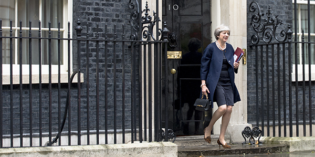
How democratic and effective are the UK’s core executive and government?
In an article from our forthcoming publication, The UK’s Changing Democracy: The 2018 Democratic Audit, Patrick Dunleavy looks at how well the dominant centre of power in the British state operates – spanning the Prime Minister, Cabinet, Cabinet committees, ministers and critical central departments. How accountable and responsive to Parliament and the public is this ‘core executive’? And how effective are these key centres of decision-making and the rest of Whitehall government, in making policy? Do they consistently serve UK citizens’ interests?
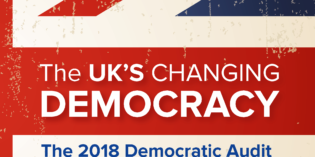
The UK’s Changing Democracy: The 2018 Democratic Audit
Our latest book, The UK’s Changing Democracy: The 2018 Democratic Audit, is published by the new LSE Press. It is an open access book, freely available (in full) for any reader to download in all ebook formats. You can read articles from the book below. Similar PostsAuditing the UK’s democracy in 2018: Core UK governance institutions […]



 Democratic Audit's core funding is provided by the Joseph Rowntree Charitable Trust. Additional funding is provided by the London School of Economics.
Democratic Audit's core funding is provided by the Joseph Rowntree Charitable Trust. Additional funding is provided by the London School of Economics.